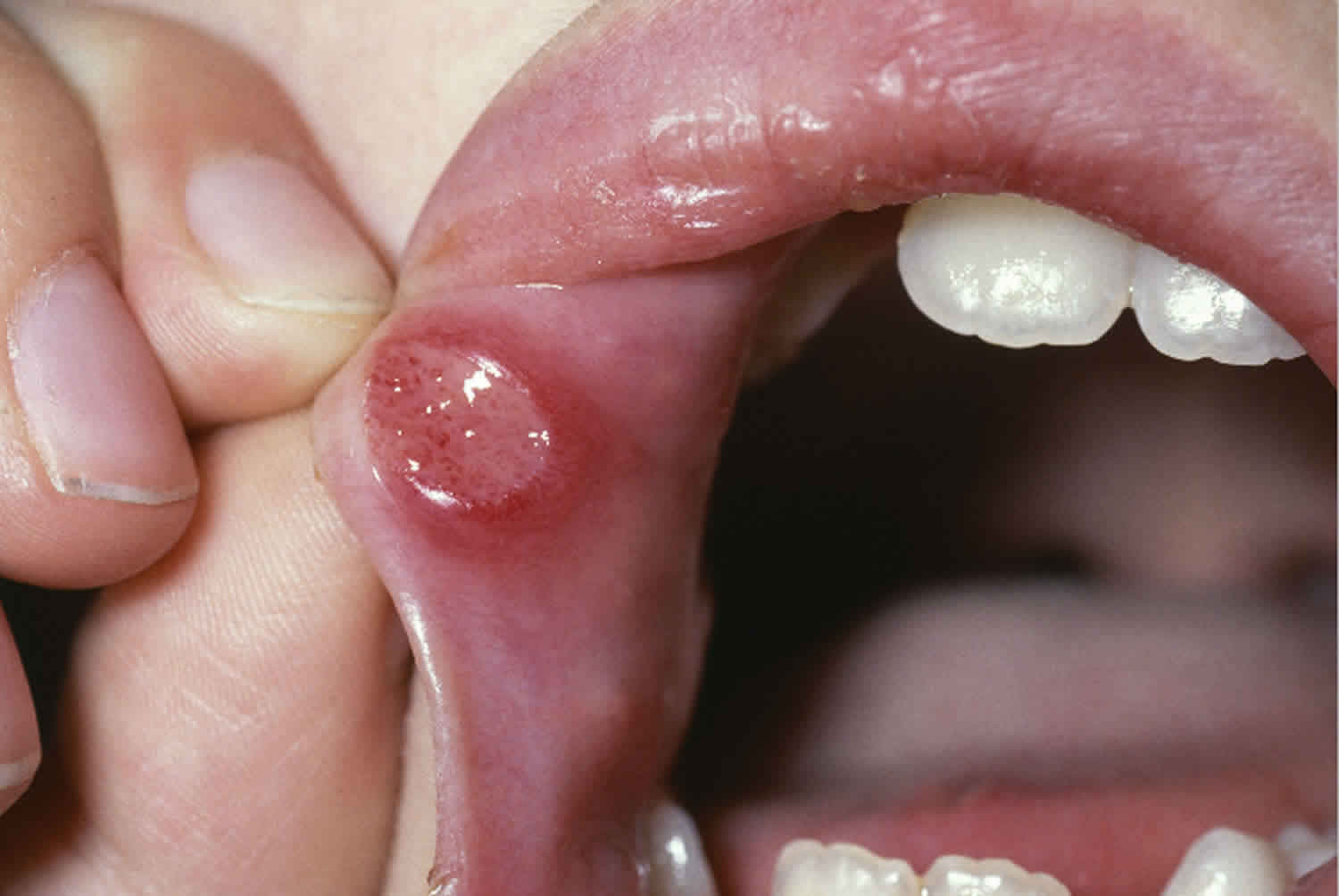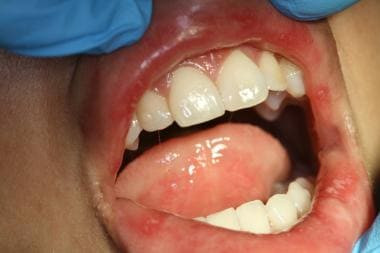Definition
Herpangina is a viral infection characterized by a sudden fever and sores in the mouth or throat. This highly contagious infection primarily affects children between the ages of three and ten but can also manifest in infants, adolescents, and young adults.
Herpangina is an extremely contagious infection that occurs predominantly in four-season countries during the summer and fall. In tropical regions, the incidence of this disease is higher during the rainy season, although it can manifest at any time of year. This disease can self-heal and manifest with modest symptoms in certain individuals.
Causes
Herpangina is caused by members of the enterovirus family. Although 22 different enterovirus variants can cause herpangina, the Coxsackie B, Coxsackie A16, enterovirus 71, and echovirus variants are the most prevalent.
The enterovirus is microscopic and belongs to the group of RNA viruses. This virus survives throughout a broad pH spectrum and retains its infectious capacity even at temperatures as high as 50°C. This characteristic enables enteroviruses to persist in the environment for an extended period. This virus exclusively infects humans as its natural hosts. Transmission primarily occurs via
- the fecal-oral route (transmission of the virus by the ingestion of fecal particles by an infected individual).
- Contact with the patient's saliva or droplets
- Direct exposure to the fluid derived from the patient's blisters
The incubation period (the interval between virus ingestion and symptom onset) of herpangina is approximately 3-5 days.
Risk factor
The individuals who are susceptible to contracting herpangina are:
- Children between the ages of 3 and 10, particularly those who are enrolled in school or daycare facilities
- Infant
- Immunocompromised individuals, such as:
-
- HIV/AIDS
- Recipients of organ transplants
- Long-term corticosteroid or immune system suppressant patients
- Pregnancy
- Patients who also have severe neurological conditions may also develop this disease, such as :
-
- Aseptic meningitis (inflammation of the brain and bone marrow linings),
- Encephalitis (brain inflammation)
- Acute flaccid paralysis
Symptoms
The symptoms induced by herpangina may vary according to the specific viral variation responsible for the infection. Certain children might have asymptomatic conditions despite being infected.
The following symptoms are present in herpangina:
- Acute onset of high fever, potentially reaching 41°C.
- Small canker sores, measuring less than 5 mm in size, or little blisters that persist for a maximum of one week and cause pain on:
-
- The posterior part of the palatine
- Tonsils
- Posterior pharyngeal wall
- Buccal
- The posterior part of the tongue
- The onset of a painful throat typically occurs approximately 24 hours before the appearance of canker sores or blisters.
- Redness on throat
- Dysphagia
- Dehydration is characterized by symptoms such as parched lips, fatigue, intense thirst, and diminished tear production
- Cervical hypertrophy
- Drops of saliva
- Fatigue
- Loss of appetite
- Vomiting
- Headache, backache, or abdominal pain
- Herpangina may be accompanied by a cutaneous eruption
- Several complications can accompany severe herpangina:
-
- Severe headache
- Cervical rigidity
- Unconsciousness or disorientation
- Epileptic or febrile seizures
- Muscle weakness
- Respiratory distress
Diagnosis
Herpangina is commonly diagnosed according to the physical examination findings and the patient's medical history. Laboratory and radiographic examinations are typically unnecessary in instances where symptoms are minor. However, more tests will be conducted by the doctor if medical conditions like brain inflammation or dehydration are detected.
The most effective diagnostic test to verify the existence of enterovirus infection is to cultivate the virus in a culture medium. Nevertheless, because of its prolonged duration, the PCR (polymerase chain reaction) test is the recommended method for detecting the enterovirus. Specimens for examination are collected from feces, oral ulcers, blister fluid, or cerebrospinal fluid in cases of brain complications. In addition to detecting the virus, the existence of infection can also be confirmed by assessing the rise in antibody titers against the virus within the body. Nevertheless, this test is not regularly conducted in cases of modest severity.
Due to the predominant manifestation of canker sores, this condition is commonly referred to as conventional canker sores. Herpangina can be differentiated from regular canker sores based on the specific site of occurrence. Canker sores, in their commonplace occurrence, seldom manifest in the pharynx and do not manifest concomitant symptoms, including fever.
Management
Herpangina typically resolves spontaneously. The therapy that can be administered is simply focused on relieving symptoms.
The following therapies are possible:
- To prevent infection, isolate the patient in a comfortable room and cleanse your hands frequently. Preventing minors from attending school altogether is preferable.
- Consume fresh, nutritious, and healthy foods. The recommended diet consists of adequate calories and dense, soft, or semi-solid substances. The purpose of this soft cuisine is to relieve the pain associated with swallowing.
- Avoid consuming foods that are spicy, hot, sour, or have the potential to irritate the throat.
- Maintain oral hygiene by rinsing your mouth with salt water or an antibacterial mouthwash after each meal.
- Maintain adequate hydration of the body, particularly in infants. Electrolyte fluids, such as ORS, may be administered if required. In addition to increasing children's fluid intake, cold or chilled beverages like ice cream, yogurt, and milk may relieve oral pain.
Treatments to relieve symptoms:
- Analgesics or antipyretic medications, including paracetamol and ibuprofen
- Apply warm compresses to shoulder folds and forehead, including the underarm.
- Using topical medication to treat canker ulcers in children's mouths is not recommended.
Currently, there is no targeted antiviral medication available for the treatment of herpangina. Antibiotics are not prescribed for herpangina, as it is caused by a virus rather than bacteria.
When therapy is implemented effectively, including the provision of sufficient nutrition and hydration, symptoms often subside within less than 10 days.
Complications
Herpangina is typically a benign condition that can resolve spontaneously. Dehydration, particularly in children, is the most common problem. Among all the different types of enteroviruses, serotype 71 is particularly worrying due to its ability to cause various complications including severe herpangina, encephalitis (inflammation of the brain), encephalomyelitis (inflammation of the brain and its lining), paralysis, and even mortality in newborns and young children.
Prevention
As herpangina is an infectious disease, the most important thing is to prevent transmission. Sanitation practices, particularly hand hygiene, constitute prevention, as the route of transmission is through the oral cavity. Increasing the frequency of hand hygiene practices is particularly crucial during food preparation, before and following meals, diaper changes, and restroom use. Furthermore, it is possible to conduct surface disinfection on any objects that the patient may have handled. This effort at prevention is shared not only by the patient but also by those in the surrounding area.
When to see a doctor?
Seek medical attention immediately if you or your children exhibit any of the following symptoms: headache, stiff neck, weak muscles, seizures, unconsciousness, tendencies to sleep, or disorientation; or if the condition worsens or develops complications. Furthermore, it is crucial to take the child to the doctor to avoid dehydration if he refuses or is unable to eat.
- dr. Yuliana Inosensia
Corsino, C., Ali, R., & Linklater, D. (2022). Herpangina. Ncbi.nlm.nih.gov. From https://www.ncbi.nlm.nih.gov/books/NBK507792/. [Accessed January 19, 2022]
What Is Herpangina?. WebMD. (2022). From https://www.webmd.com/oral-health/what-is-herpangina. [Accessed January 19, 2022]
Herpangina - Infectious Diseases - MSD Manual Professional Edition. MSD Manual Professional Edition. (2022). From https://www.msdmanuals.com/professional/infectious-diseases/enteroviruses/herpangina.[Accessed January 19, 2022]
default - Stanford Children's Health. Stanfordchildrens.org. (2022). From https://www.stanfordchildrens.org/en/topic/default?id=herpangina-90-P01855. [Accessed January 19, 2022]












